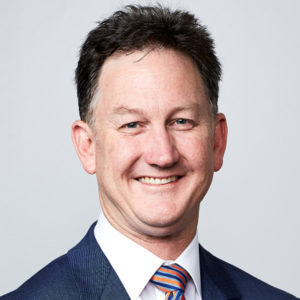MBBS(WA) MRCPI FRANZCOG
AMA President
Saturday, April 14th, 2018
 It is a pleasure to contribute to the Australian Medical Student Journal, and to be involved in the work and the thinking of the next generation of medical professionals.
It is a pleasure to contribute to the Australian Medical Student Journal, and to be involved in the work and the thinking of the next generation of medical professionals.
Medical education and training are at the core of Australian Medical Association (AMA) policy and advocacy. Without a quality future medical workforce, the health policies and reforms of government cannot succeed. The AMA keeps reminding governments at all levels of this important fact.
But the concerns of medical students and young doctors extend well beyond the medical and the professional. You want to help build a better society. You want to empower people and communities.
You have strong views on issues like climate change and marriage equality. Like the AMA, you want to make a difference – a real difference.
AMA advocacy is very broad and very deep; it has to be. No other medical or health organisation in the country can even come close to our success in initiating or influencing change across the health system and society.
Single-issue or narrow focus groups, like Doctors for the Environment and Doctors for Refugees, do great work, as do the learned Colleges, Societies, and Associations. The other health professions, the public health groups, consumer representatives, and other groups all do their jobs and also do them well.
But the AMA’s mission goes so much further.
If you look at the AMA website, we have around 150 Position Statements, which include:
· Climate Change and Health;
· Workplace Bullying and Harassment;
· Indigenous Health;
· Sexual and Reproductive Health;
· Women’s Health;
· Men’s Health;
· Obesity;
· Human Cloning;
· End of Life Care;
· Family and Domestic Violence;
· Female Genital Mutilation;
· Concussion in Sport; and
· Firearms.
These issues cover many facets of society and many ideologies. Some are regarded as progressive, some are conservative, but most are controversial — and therefore potentially divisive.
We do this on top of our other core business — Medicare, the Pharmaceutical Benefits Scheme (PBS), public hospital funding, the Professional Services Review (PSR), medical workforce, private health, rural health, doctors’ health, and a broad range of public health issues.
The AMA has to always tread a fine line, and we do that willingly, as with recent topical issues like climate change, pollution, air quality, and renewable energy.
The AMA believes that climate change poses a significant worldwide threat to health and urgent action is required to reduce this potential harm.
We have been vocal about the need for urgent government action, and have repeatedly called for the development of a National Strategy for Health and Climate Change.
The AMA Position Statement, Climate Change and Human Health 2015, is a very strong document. It was developed from the ground up, with input from AMA members at grassroots level around the country.
The AMA wants to see a national strategic approach to climate change and health, and we want health professionals to play an active and leading role in educating the public about the impacts and health issues associated with climate change.
Human health is ultimately dependent on the health of the planet, and the AMA lobbies governments for urgent measures to mitigate the evolving effects of climate change, including the transition to non-combustion energy sources.
The evidence is clear — we cannot sit back and do nothing.
There is considerable evidence to encourage governments around the world to plan for the major impacts of climate change, which include extreme weather events, the spread of diseases, disrupted supplies of food and water, and threats to livelihoods and security.
Our stance is not limited to the Position Statement. We are actively engaged in advocacy on climate change and health. We attended the Health Leaders Roundtable at Parliament House in 2016, where health advocacy bodies met with Members of Parliament to discuss the health impacts of climate change and the need for urgent action.
We make regular submissions to relevant Parliamentary inquiries, where we take every opportunity to highlight the connection between climate change and human health.
We adopt this approach across the broad range of policies we, as the peak medical organisation in the country, embrace. We take this role very seriously.
You are the future of the medical profession. It is my job — and that of all AMA leaders — to pass on to you a strong policy platform, and an even stronger advocacy agenda, to help you achieve your ambitions in medicine and to make the world a better place in which to live. We will not let you down.
